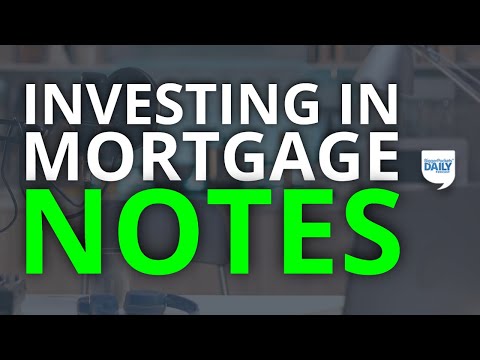Demystifying ‘What is a Mortgage Note’
Let’s crack open the nut shell labeled “What is a mortgage note?” A mortgage note in simple English, is a legal document that sets the stage for the terms of the mortgage between you, the borrower, and your lending institution. It drily discloses the details such as the total amount of your home loan and the down payment amount.
So, you may ask, why should I care about this document? Well my friend, mortgage notes matter because they record your promise to repay the loan, and this has huge implications on property ownership rights – trust me, it’s not a light matter!

10 Fast Facts You Need To Know About a Mortgage Note
Composition of a Mortgage Note
| Term | Explanation |
|---|---|
| —— | ————- |
| Mortgage Note | A legal document that sets out all the terms of the mortgage between a borrower and their lending institution. |
| Total Amount | The total amount of the home loan debt agreed upon by the lender and borrower. |
| Down Payment | The initial upfront portion of the total amount of the home loan that the borrower pays to the lender. |
| Deed | A recorded document that memorializes the transfer of property from the grantor (seller) to the grantee (buyer). |
| Note vs Deed | The note is an unrecorded paper that binds an individual who has assumed debt through a promise-to-pay instrument. Whereas, Deed is a recorded document signifying property transfer. |
| Promissory Notes/Mortgage Notes | Written agreements in which one party promises to pay another party a certain amount of money at a later date in time. |
| Mortgage Note Purchasing | When you purchase a mortgage note, you become the lender with all the rights of the lender. You don’t own the real estate, but you have a right to take the collateral if the borrower doesn’t pay. |
Role and Function of a Mortgage Note
Your mortgage note is a binding promise to repay your lending institution, plain and simple. In legal lingo, it’s a promissory note; it serves as a contract with the bank or other lending institution, enforcing your obligation to pay back the loan.
Now, why should you care? This small piece of paper plays a vital role in your mortgage process. It dictates your repayment terms, potential penalties, and contingency plans in the event of defaulting on payments such as covered by the “acceleration clause” in real estate. This clause, a key feature of the mortgage note, can make the entire loan payable immediately if you default.

Is a Mortgage Note the same as a Deed?
Should we compare apples with oranges or mortgage notes with deeds? The answer is a resounding “No” in both cases. A mortgage note binds you into a promise of payment, while a deed is your property’s title. It’s the recorded document that transfers property from one owner (the Grantor) to the next (the Grantee). So, you see, it does not pay to mix them up.

The Other Name for a Mortgage Note
Just when you thought it was safe to go back in the water, we hit you with another term – ‘promissory note.’ Don’t panic; promissory notes and mortgage notes are the same thing. Like your mortgage note, a promissory note is an agreement where you promise to pay back a certain amount of money to another party.
Mortgage Note as a Promise-to-pay Instrument
When you sign a mortgage note, you’re essentially making a promise. You’re telling your lender, “Hey, I’ll pay you back.” This isn’t just rainbows and butterflies; it’s legally binding and can lead to serious consequences, such as foreclosure, if you don’t stay true to the agreement.

What Happens when You Buy a Mortgage Note?
So, you’ve decided to buy a mortgage note and become the lender, huh? You’re now stepping into new shoes – the lender’s. To put that into perspective, imagine you loaned your neighbor your lawnmower, and they promised to return it. In essence, you’re in the same position but on a much larger scale.
Buyer’s Role in a Mortgage Note
As a note buyer, you’re financially responsible for collecting the borrower’s monthly payments. But here’s the hitch: what if the borrower doesn’t pay? Like a superhero with capes, it’s your job to handle the situation. If they fail to pay, you have the right to take collateral – the house – to get your money back.

Decoding the Mortgage Note Lingo
Here’s some help to get you through the jargon jungle:
Alienate: In mortgage terms, to ‘alienate’ means to transfer the title of your property to someone else. Sounds like you’re turning your property into an alien, right? Well, don’t worry, it isn’t that dramatic. It’s just like when you transfer the ownership of a car, as explained here.
Defeasance clause: This sounds like something out of a legal drama, but it’s an important part of the mortgage process. This clause allows you to reclaim your property once you’ve fully paid your mortgage, as detailed in this mortgage Rater article.

Unmasking the Mortgage Note: The Final Takeaway
To sum it up, a mortgage note is a firm handshake between you and your lender, a promise to pay back your home loan. It’s clear as day why understanding your mortgage note is important. From dictating the terms of your loan to transferring property ownership, it’s a crucial part of the mortgage process.
Before getting caught up in the process, make sure you fully understand the terms outlined in your mortgage note. And when in doubt, consult a mortgage advisor. It’s like going through a dumbbell chest workout – if you don’t know what you’re doing, you may end up hurting yourself. Better safe than sorry, right?



